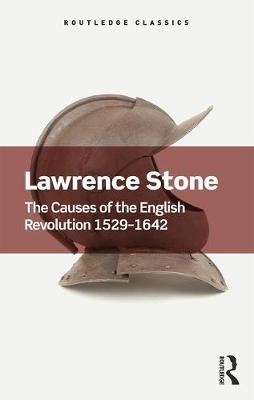8%OFF
Stock image for illustration purposes only - book cover, edition or condition may vary.
The Causes of the English Revolution 1529-1642 (Routledge Classics)
Lawrence Stone (Ed.)
FREE Delivery in Ireland
Description for The Causes of the English Revolution 1529-1642 (Routledge Classics)
Paperback. .
Dividing the nation and causing massive political change, the English Civil War remains one of the most decisive and dramatic conflicts of English history. Lawrence Stone's account of the factors leading up to the deposition of Charles I in 1642 is widely regarded as a classic in the field. Brilliantly synthesising the historical, political and sociological interpretations of the seventeeth century, Stone explores theories of revolution and traces the social and economic change that led to this period of instability.
The picture that emerges is one where historical interpretation is enriched but not determined by grand theories in the social ... Read moresciences and, as Stone elegantly argues, one where the upheavals of the seventeenth century are central to the very story of modernity.
This Routledge Classics edition includes a new foreword by Clare Jackson, Trinity Hall, Cambridge.
Show Less
Product Details
Series
Routledge Classics
Place of Publication
London, United Kingdom
Shipping Time
Usually ships in 4 to 8 working days
About Lawrence Stone (Ed.)
Lawrence Stone (1919-1999) was one of the leading social and political historians of the post-1945 period. He was educated at Charterhouse School and Christ Church, Oxford. He was a lecturer at University College, Oxford, from 1947 to 1950, and a Fellow of Wadham College, Oxford, from 1950 to 1963. From 1963 to1990 he was Dodge Professor of History at Princeton ... Read moreUniversity, and Director of the Shelby Cullom Davis Center for Historical Studies, also at Princeton, from 1969. Show Less
Reviews for The Causes of the English Revolution 1529-1642 (Routledge Classics)
‘Much the best all-round analysis of the causes of the English Revolution that we have.’ Times Literary Supplement ‘He was that rare person among the academic species, both a historians' historian and a popular one.' Michael Thompson, The Guardian ‘Lawrence Stone belonged to a remarkable generation of British historians who dominated and defined their subject for nearly half ... Read morea century, and which included Christopher Hill, G.R. Elton, Asa Briggs, J.H. Plumb, Eric Hobsbawm and Edward Thompson. They all wrote widely and well, and reached a large audience in universities and far beyond. But in many ways, Stone was the most creative - and the most controversial - of them all.’ David Cannadine, The Independent Show Less

